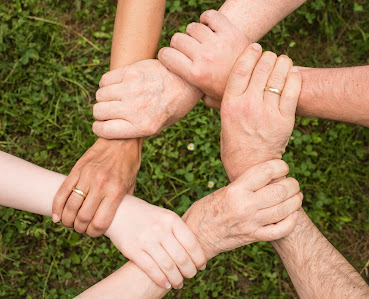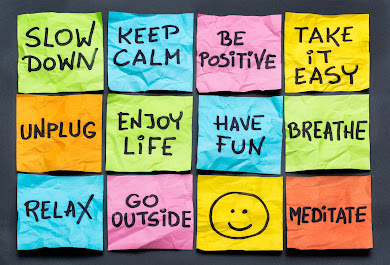Weight control🌵 and Lifestyle Medicine🌿 Part 7- Social connection
Unifying Weight control and social connection remain to be
of indisputable importance. Food 🍲has been shared since the start of our
presence on earth🌎 together. It is woven
into our cultural fabric 🪷, in many poetic and
beautiful ways. Understanding this is a good place for us to start exploring. Please
travel this journey with me and consider the following:
·
How do our lessons from
childhood influence our eating patterns?
·
Are there any cultural
pressures that prevail?
·
Can the above questions
influence our eating outcomes?
I will start with an example of food and society to illustrate my point. The state of Tonga is a picturesque group of 170 islands of great beauty: latitude and longitude -21.136065, --175.208939. Among these friendly inhabitants are a range of very important customs. Sharing food with their families 👨👩👧👦 and friends 👯is very important. What is also important is the relationship between sharing food and demonstrating their personal wealth relating to the capability to provide this food to their loved ones. Or better said their level of success and position in society. One of the consequences of this extreme expression of hospitality and generosity is presence of the high level of overweight and obese members of Tongan society.
Many states around the globe exhibit similar patterns. Once weight control moves further out of reach, the risk of chronic disease development rises, especially for heart disease, Type 1 Diabetes, some cancers and stroke. Absenteeism from work and school can rise, and the countries economic burden for supplying health services increases.
So well-intended social connection can lead to other issues related to both children 👶and adults where weight is concerned. An example includes children being teased or bullied at school. This may lead to potential rises in stress, anxiety, depression and social isolation for that child. This can be cruel and unfair and may lead to children being less likely to be accepted into social groups due to this stigma projection. Other reasons for this may include peer pressure, abuse, neglect or mental health problems. This is very important to address, as all members of society deserve to feel they can be included, accepted and supported.
Another example can be messages that we were given as children related to our eating patterns at home🏡. If we were accustomed to a western diet high in processed, take away 🌭 and high density & therefore high calorie food, we may take these messages into adulthood that this is the only way to eat. Alternatively, we may have been told off when we wouldn’t eat our vegetables 🥦 and instructed if we were good and ate them, we would be rewarded by some sweets 🧁 later. This sets up eating behaviours that often lead to overeating as adults.
So, what should we do to maintain our social connection? It is important that we make long-term social connection which allows us to live a healthier life. Examples may include considering joining social groups, doing volunteer work, joining sporting, arts or craft clubs, allowing us to create additional relationships with people. I have mentioned in my June blog that a study was started in 1938 on 268 graduates from Harvard University for an 80-year period (see details in the link below https://talkinglifestylemedicine.blogspot.com/2023/06/cardiovascular-health-and-lifestyle.html). As mentioned before, social integration was a key predictor in the level of happiness and longevity experienced by these people. Another important thing to consider is the micro moments that we spend with people. This may be very quick and short times that we spend with people perhaps at a local news agent, at the bus stop, people we bump into at work or school. Just think how good it was to meet again one of your friends down the street that you haven't seen for a long time, and the lovely sense of connection and enjoyment of the moments experienced.
Social connection can be used as an opportunity to become more physically active⛹🏽. Meet with friends for a walk 🚶🏽or swim🏊🏽, join a walking club or tai chi group on the beach 🏖. These opportunities of social connection align well with weight loss. Research has demonstrated that as you become more active, you are more likely to have a diet with more fibre in it, less saturated fat, and total fats. Fibre is closely linked to not allowing too sudden spikes in blood sugar levels, so increasing your Whole food plant-based 🌿 diet is an essential part of increasing fibre content in your diet.
Use social connection to expand your time with friends over meals 🍽 is another good way. When you go out, I suggest you ask the waiter if the chef would be kind enough to make you up a meal of his best fruits 🍒 vegetables 🥦, legumes 🫘, with some nuts and seeds And remember when out making these social connections, stay away from take away food and processed foods, full of attractive and undesirable balance that takes us away from our weight control goals.
I used to feel guilty and shy about making such requests from waiters in public. Trust me, I am over it. If I can’t see something I truly want to eat for my future and present health maintenance, then I will invent my own future by requesting what I want. You will be absolutely amazed by some of the beautiful and highly nutritious dishes that will fall before your eyes on the plate! It is just too easy to believe that you must eat exactly what's offered to you in a restaurant. Don’t worry, the price will normally reflect a fair amount for a good meal.
The world of quantum physics tells us a lot about the type of benefits we have making social contact with people we like. We are social creatures, and social connection is dearly important for our ongoing happiness and avoidance of chronic diseases. Therefore, there is undeniable relationship between our ability to control our weight over time and our level of happiness 🧧through social connection. And here it's very important to mention that the social connection that we get from social media 📲 can be equally important in our life. It was much harder before the advent of social media to be in regular contact with our distant family and friends to the extent that we can do now. Services such as Facebook, X, Instagram, and LinkedIn are examples of world developed platforms with infinite opportunities to create links with school frames, personal friends, work associates and social support groups that bring meaning and inclusion into our lives. But don't forget about the social connection that we make by being with people. It is a very different type of social connection to one that we get through social media, and we must not discount the benefits of this person-to-person 👫connection in our lives. I hope this is served as a good introduction to the importance of social connection. Remember that the quality of good social connection should always be one of balanced ⚖️input, where both parties are equally benefiting from the contributions made by them or the group that they are members of. And remembering especially in the case of children, that the use of social media must be managed correctly and appropriately, depending on their level of experience, maturity and understanding.
Thank you again for joining me, it's always my pleasure. See you from my next blog on Weight control 🌵and lifestyle medicine🌿- Part 9 Positive thinking😇. Wherever you are on this beautiful planet that we call earth🌎 I wish you good health safety and warm wishes.
Jeremy 😃
References
1.Brewis AA, Bruening M. Weight Shame, Social Connection, and Depressive Symptoms in Late Adolescence. International Journal of Environmental Research and Public Health. 2018; 15(5):891. https://doi.org/10.3390/ijerph15050891
2. Joseph RJ, Alonso-Alonso M, Bond DS, Pascual-Leone A, Blackburn GL. The neurocognitive connection between physical activity and eating behaviour. Obes Rev. 2011 Oct;12(10):800-12. doi: 10.1111/j.1467-789X.2011.00893.x. Epub 2011 Jun 16. PMID: 21676151; PMCID: PMC3535467.
3. Bouzas C, Bibiloni MDM, Tur JA. Relationship between Body Image and Body Weight Control in Overweight ≥55-Year-Old Adults: A Systematic Review. Int J Environ Res Public Health. 2019 May 9;16(9):1622. doi: 10.3390/ijerph16091622. PMID: 31075869; PMCID: PMC6540116.
4. Grant, W.T. Study of adult development. Grant second generation study 2015. https://www.adultdevelopmentstudy.org/grantandglueckstudy
5. Walcott-McQuigg, J.A., 2005. Weight control
behavior and women: A cross-cultural perspective. Journal of
International Women's Studies, 7(2), pp.152-168.


Comments
Post a Comment